By Carolyn Digby
Strength can mean a number of different things to a number of different people. Some may define it as being physically strong and being able to lift heavy things, while others may feel it more encompasses a mental quality, to be able to withstand any given scenario and emerge better from it. I think we can all agree that strength can encapsulate both physical and mental, and it isn't so black and white. Just like recovery. Recovery is an entirely different beast, with everyone having their own opinion on what it looks like.
I was thinking about what it means to be strong recently during a yoga class. In the past few years I've taken up yoga as part of a healthy lifestyle, and the thing I love the most about it is that it's truly a non-competitive and supportive environment. It lacks the ego of the competitive sports that I participated in growing up, and the obsessive nature that was apparent in the other active pursuits I took up while in my eating disorder. It genuinely fosters mindfulness, and is great to calm down the mind and slow your thoughts. Also, you don't need to be super flexible, and the practice works out any knots in your muscles naturally (hello good posture!). For someone that is recovered from an eating disorder, it really has been for me, a great choice for healthy activity. Anyway, I digress.
Back to strength, I have always thought of myself as being physically weak. It was regularly pointed out to me and evident that I lacked strength, and I could never open jars or lift anything remotely heavy. While this was obviously an effect of my eating disorder, this perceived physical weakness persisted even before I was ill and now through recovery. So when I practice yoga, I have a complex in my head that I am limited to the postures I can do. I can never do inversions (headstands, handstands, etc) or arm balances (being crow, side crow, and all that jazz). Try as I might, I could never get into them. I even recently took an inversion workshop hoping to master these poses. I was practicing regularly at home and falling on my face more often than I'd like to admit. I may have bruised my hand in a particularly embarrassing public incident in class.
While I have made tremendous improvements in the past few months towards these positions and have slowly built more physical strength, I always get terrified once I begin to go upside down. Back to that recent yoga class, I was feeling a bit defeated since I had tried! So hard! Yet no cigar. I thought to myself, why is it so important to me? Nobody thinks any more or less of me if I can't do these poses other than myself. Nobody hands out a gold star for being able to do a headstand, that isn't the point of yoga.
I realized it was because I wanted to change my own perspective of being strong. My reasoning wasn't to prove it to anyone else; it was really just for me. As I mentioned earlier, it was always commonly said I was not strong, and I had convinced myself of the same thing. I think I wanted to prove to myself that YES, I can do it. I can be strong and confident. That if I set my mind to something, I can knock it out of the park.
But really, it ties strongly into mental strength too. As I dug deeper, I recognized that this was definitely not something I was able to do during my eating disorder. During my struggle with anorexia, while I did have an exercise obsession, I couldn't even think of mastering a headstand; I would have crumbled into a pile. I realized that my desire to master these poses was more representative of how far I've come since those days, and I wanted to prove to myself as some sort of benchmark of my progress in recovery.
This was important to realize, because it also made me think: do I need to be able to go into and seamlessly hold crow pose to prove that I'm recovered? No! It's nice to be able to do and looks cool and everything, but I think the very fact I'm alive and having an active, fulfilling life that includes yoga is enough for me. That's how I measure recovery, and more importantly, strength. And not just physical strength; mental strength, and what that means to me. It's important to ask yourself what exactly recovery means to you, and what kind of person do you want to be.
Funnily enough, once I had this conversation with myself, at my next yoga class I nailed crow pose. Maybe that shows that once we stop worrying suddenly everything becomes easier? Who knows, that could be another topic altogether. All I know is everyone is strong in their own ways, and I truly believe that those who suffer from and recover from eating disorders are the strongest people I know. We all need to channel our inner strength and foster others.
Carolyn went to the University of Victoria for psychology, and is currently working towards applying for a Master's degree in the same subject. She hopes to uncover what sociological and personality aspects contribute to the development of eating disorders. Otherwise, Carolyn loves writing, drawing, travelling the world, and of course, her handsome cat.
[vc_row][vc_column width="1/1"][vc_column_text][printfriendly]
By Ailey Jolie
The entirety of my life once revolved around my weight. Every thought, action, and breath I breathed was dedicated towards the pursuit of becoming thinner, smaller, invisible…
After my personality and vitality had starved to diminishment, my physical body began the final act of disappearance. It was during what I thought was the last act of my life that a plot twist in the form of major medical complication, a heart attack, stormed the stage. This twist brought trained professionals to co-star alongside my emaciated body. Their actions saved my life and stopped the tragedy I was acting out.
 These trained professionals saw through my performing act. They saw my societally sculpted body as not the embodiment of ‘perfection’ but instead the consequences of our externally validating consumer culture; a culture that values external appearances over internal ways of being. A culture that pushes ninety percent of women to diet at some point in their life. A culture where one in four teenage boys experience teasing about body size before high-school graduation. A culture that continuously prioritises appearances over our health, connection, authenticity, transparency and raw messy humanness.
These trained professionals saw through my performing act. They saw my societally sculpted body as not the embodiment of ‘perfection’ but instead the consequences of our externally validating consumer culture; a culture that values external appearances over internal ways of being. A culture that pushes ninety percent of women to diet at some point in their life. A culture where one in four teenage boys experience teasing about body size before high-school graduation. A culture that continuously prioritises appearances over our health, connection, authenticity, transparency and raw messy humanness.
My new co-stars were all trained professionals in the field of eating disorders and they were able to see past my performance and see me. Seeing me meant that they understood that how I was acting and engaging in the world was not a choice; I didn’t know any other way of being. I was not choosing to starve myself, purge my body hollow, exercise obsessively or be addicted to laxatives. I wasn't choosing any of those things, but instead, a dictator inside my brain forced me to scrutinize and obsess over my weight every minute of everyday.
This dictator makes a home within the mind of every sufferer. This dictator works around the clock at rewiring and hardwiring the individual to experience disconnection from their body, their community, and their passions so that the sufferer only hears the words of the dictator.
The dictator voices didn’t force me to harm my body to be more beautiful, to be more attractive to the opposite sex, to be liked or to be famous. This dictator screamed harmful things for me to do to my body inside my mind with the pure intent of just drowning out my authenticity. My authentic self that I didn’t feel worthy of being.
None of my actions were a choice - they were an illness, a coping mechanism that allowed me to disguise my insecurities, pain, trauma, self-hate, and complete belief that I was not enough, that I would never be enough.
Eating disorders are not choices.
Eating disorders are not just low-calorie consumption.
Eating disorders are not cries for help.
Eating disorders are not about weight, size, or body composition.
Eating disorders are not diets gone bad.
Eating disorders are not just for rich, bored white women.
Eating disorders are mental illnesses.
Eating disorders are the mental illness with the highest mortality rate.
Eating disorders are a coping mechanism for the ones that somehow survived.
If we want each person who experiences an eating disorder to survive, we as a culture, as a community, have to begin to be radically honest about the issues that implement a dictator inside the brains of those suffering from an eating disorder.
Witnessing countless consumption based advertisements of thin women and freakishly fit men does not implement a dictator into a suffers mind. These images reinforce a dictator's presence. Eating disorders are about so much more.
The largest barrier I faced during the recovery process is the same barrier that stops society from offering compassion to those suffering from an eating disorder. This barrier is the belief that eating disorders are a choice. That those who are suffering are choosing to suffer, but these people aren’t. These individuals are not choosing to prioritize fitting into a pair of jeans over enjoying a cheesy pizza with you - these men and women are coping. There was point in there past where eating disorder behaviours offered them a way to survive in the world. Often they didn’t have the resources or knowledge to cope differently or in a way that wouldn’t compromise their health.
If our culture is ever to show people with eating disorders that 'coping' no longer requires harming themselves, we as a culture must first shake the misconceptions that people suffering from eating disorders are choosing their behaviours. In the place of this misconception, we must culturally begin to offer these people limitless compassion.
Being on the other side of an eating disorder allows me the opportunity to be radically honest about the dictator that lived inside my mind and what motivates one to deny themselves nutrients, nourishment and the full experience of living.
This is an illness.
The cure is compassion.
[/vc_column_text][/vc_column][/vc_row][vc_row][vc_column][vc_column_text]
[/vc_column_text][/vc_column][/vc_row][vc_row][vc_column width="1/1"][vc_column_text]
[dt_divider style="thin" /]
Ailey Jolie is currently a student working towards a Master of Arts in Counselling Psychology. She has personal experiences with the world of eating disorders which drives her passion for helping others through their own recovery process.
[/vc_column_text][/vc_column][/vc_row]
[vc_row][vc_column][vc_column_text][printfriendly]
By Kaela Scott
Motivation can be a hard thing to come by when we are battling with our recovery. Finding the drive, energy and even the interest to keep going when things get hard is often incredibly challenging and overwhelming. January is a great month for us to discuss motivation and persistence because it’s a time when we are often bombarded by people’s new years resolutions. While I myself am not a huge believer in New Year's resolutions, largely because only 9.3% of people are successful in sticking with them, I do strongly believe in setting goals that can help us achieve our ultimate goal of being well.
One of the greatest struggles people have when they are setting goals is that they make them too big, too broad, and too vague. These goals feel great to begin with but they often make it difficult to see our successes, which can cause us to give up and retreat into what is comfortable or safe. For example, lots of people will tell themselves that they will never engage in an eating disorder behavior like purging or skipping meals again starting on a certain date. Most people get defeated by goals that big.
If you want to move forward and stay motivated in your recovery I recommend you start much smaller and create monthly focuses, or for those of you who are at the very beginning of your recovery journey - weekly focuses. These focuses need to be bite sized. In other words, pick a focus that you feel you can manage without your anxiety being at a 10/10 consistently.
For example, we know that self-care is critical to our recovery and yet when it comes to doing it, it can often be something that people struggle to maintain. A bite-sized goal could be that you plan on doing some form of self-care for 20 minutes three times a week for the next 4 weeks. When the 4 weeks are up, you take a moment to reflect on whether or not you believe doing this goal was helpful for you. Keep in mind, helpful doesn’t mean it was without struggle. It means that it had some kind of positive impact on you and your ultimate goal of recovery. Sometimes it can be helpful to get feedback from those closest to us to see if they noticed if our focus had a positive impact.
If you did find your focus helpful, keep it in your schedule and add a new focus. Remember these focuses are meant to be manageable and not all consuming. On the other hand, if you found your focus was too overwhelming or ended up fuelling your eating disorder in some way, set it aside and pick something that you feel will promote your well being. We can always come back to focuses that may not have been the right fit for a particular time in our lives but might be healthier at a later date.
What we are ultimately striving for is the ability to increase the number of positive focuses we have each day. In time, the things that were particularly difficult become easier with practice and consistency and our days are dominated with recovery focuses and goals instead of our Eating Disorder’s demands.
[/vc_column_text][/vc_column][/vc_row][vc_row][vc_column][vc_column_text]
[/vc_column_text][/vc_column][/vc_row][vc_row][vc_column][vc_column_text]
[dt_divider style="thin" /]
Kaela Scott is a Registered Clinical Counsellor who specializes in Eating Disorders. She runs her own private practice and works with the Looking Glass Foundation in both their summer camp and their Hand In Hand Program. She has been passionate about working with eating disorders since freeing herself from her own struggle and realizing what it is like to be happy and well. When she isn’t working, you can find Kaela either cozying up with a cup of tea and her friends or up in the mountains going for a hike.
[/vc_column_text][/vc_column][/vc_row]
[vc_row][vc_column width="1/1"][vc_column_text][printfriendly]
By Alicia Putinski
When the calendar year shifts, many aspire to set New Year's resolutions, and one of the most prominent is weight loss.
I've been a personal trainer for 4 years and I battled orthorexia in my early days of personal training. Orthorexia is common amongst athletes, avid gym goers, personal trainers and health coaches. My own experience inspired me to become a life coach to help others overcome negative body image and make a positive difference in this industry.
You may be wondering what orthorexia is. 'Orthos' is a Greek word meaning straight/right/correct. Orthorexia is an unhealthy obsession with dieting and exercise, and this form of disordered eating is on the rise.
The diet industry is worth billions of dollars and it thrives on targeting emotions such as guilt and shame, and many are driven to become fitter from a place of fear. Often the bodies that are displayed in fitness advertising are bodybuilders at their peak posing strategically with full body makeup and professional lighting. Meaning, the models don't even look like the images in the advertising.
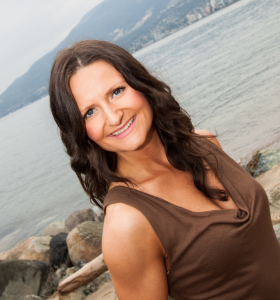 In my own experience with orthorexia and exercise obsession, in addition to working with others, I have examined the depths of the mindset many adopt in fitness. It is often coming from a place of making appearance the primary focus.
In my own experience with orthorexia and exercise obsession, in addition to working with others, I have examined the depths of the mindset many adopt in fitness. It is often coming from a place of making appearance the primary focus.
Many of my life coaching clients are athletes and avid gym goers. I love discussing fitness outside of body composition with them in the process of overcoming disordered eating and negative body image.
Let's look at some solid intentions and perceptions to adopt for a healthy fitness journey:
Develop an exercise frequency that will suit your recovery and lifestyle long term. If you take a look at your schedule and feel that you can consistently dedicate 2 times per week to exercise, that's great! If you can manage 4 consistently, go for it. Also, it's always ok to start with less and build your way up to more as you feel you can manage. During my recovery, I took extended breaks from the gym if I felt it was best for my mental and physical health.
Health and fitness begins with our thoughts, feelings and emotions. Our physiques will not take us as far as our characters. I always tell my body confidence coaching clients that our bodies are our homes. Be kind to your home.
[/vc_column_text][/vc_column][/vc_row][vc_row][vc_column][vc_column_text]
[/vc_column_text][/vc_column][/vc_row][vc_row][vc_column width="1/1"][vc_column_text]
[dt_divider style="thin" /]
Alicia Putinski is the founder of Weightless Body Confidence Coaching. Alicia helps others rise above adversity in a number of ways, and she specializes in orthorexia. She is a natural athlete who advocates functional movement, eating for performance and incorporating all food in healthy moderation. To learn more about Alicia and her work visit www.youareweightless.com
[/vc_column_text][/vc_column][/vc_row]
[vc_row][vc_column][vc_column_text][printfriendly]
I hope this message finds you healthy, happy, and warm on these chilly December days! It’s hard to believe that 2016 is almost over, but I find that there’s a certain magic in starting off a brand new year. It’s a wonderful time to reflect on the year that was, to connect with the here and now, and to project some light and warmth toward the months ahead.
Here at the Looking Glass Foundation, we are doing all of these things at once as we prepare to transition into the New Year. We’re feeling gratitude, hope, and anticipation in equal measure – with perhaps just a touch of wonder at how we’re going to achieve all of the inspired goals we have set for ourselves in 2017…
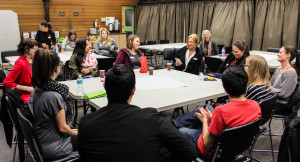 The answer, of course, is by grounding ourselves in the support and encouragement that constantly surrounds us. The Looking Glass Foundation is so fortunate (and proud!) to have an ever-expanding community of wonderful supporters, like you, who are committed to a world without eating disorders. We hope that you will take a moment this season to reflect on the significance of your role, and to recognize how much of a difference you make by supporting all of our programs, services, and initiatives. Not only do you help sufferers & their loved ones get to the other side of eating disorders, but you also help each and every one of us at the Looking Glass Foundation to carry forward your passion, your stories, and your successes into everything that we do.
The answer, of course, is by grounding ourselves in the support and encouragement that constantly surrounds us. The Looking Glass Foundation is so fortunate (and proud!) to have an ever-expanding community of wonderful supporters, like you, who are committed to a world without eating disorders. We hope that you will take a moment this season to reflect on the significance of your role, and to recognize how much of a difference you make by supporting all of our programs, services, and initiatives. Not only do you help sufferers & their loved ones get to the other side of eating disorders, but you also help each and every one of us at the Looking Glass Foundation to carry forward your passion, your stories, and your successes into everything that we do.
Last month, the Looking Glass had the pleasure of hearing some of these stories and successes at the first-ever Volunteer Development Event. I would like to take this opportunity to share a few highlights and key messages from the event, for the benefit of all those who were unable to attend. Fortunately, Looking Glass volunteer Breanna Anaka had her camera at the ready throughout the entire afternoon to capture all the fun we had - thank you, Breanna!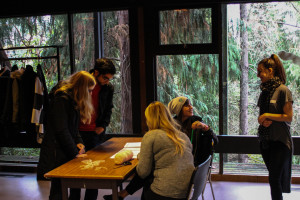
Firstly, I would like to extend a big thank-you to everyone who attended the inaugural Looking Glass Volunteer Development Event on Saturday, November 19th, at Van Dusen Gardens – an afternoon of engaged discussion, learning, and networking in a relaxed setting. We got to enjoy some delicious coffee that was generously donated by JJ Bean , and we gave away two fantastic door prizes as a bonus for attending! Congratulations to Tamara Oceguera and Alicia Putinski, our lucky prize winners.
I'd also like to thank my brilliant Looking Glass colleagues, who not only kept the entire event running smoothly from start to finish, but also elevated the discussion with their experienced insight. Many thanks to Stacey Huget (Executive Director), Daniel Kong (Project Manager), Karen Wall & Amy Pezzente (Online Peer Support), Kaela Scott (Hand in Hand), and Nicole Keay (Communications) for all their work and support.
We opened the event with some words of welcome and gratitude from our Board Chair, Malcolm Leitch, who reminded us of the enduring impact the Looking Glass Foundation has upon eating disorder sufferers, their loved ones, and their communities. We were then very fortunate to hear from five passionate women who spoke to their experiences as Looking Glass volunteers: we heard about the ways in which volunteering has taught them to better understand themselves; we heard about the resilience they have seen in ED sufferers, and the strength the sufferers find in supporting one another; and we heard that the Looking Glass “feels like family” – a sentiment I have certainly come to agree with in the few short months that I have been with all of you. To each of the following speakers, thank you for your inspiring words and insights, and for your ongoing commitment to the Looking Glass community!
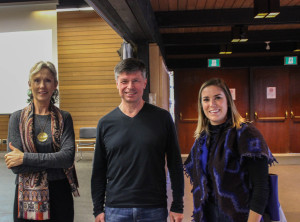 Amanda Negri – Hand in Hand
Amanda Negri – Hand in Hand
Leyla Brucar – Online Peer Support
Karina Franzke – Annual Gala
Ali Eberhardt – Summer Camp
Carolyn Digby – Blogging. Carolyn actually created a short video for us to watch, as she is currently living in Toronto!
Speaking of inspirational, we also got to hear from our Executive Director, Stacey Huget, with an update on the Something’s Gotta Give campaign. Stacey highlighted the passion, courage, resilience, and raw candor that was evident in each of the creative and personal contributions submitted by campaign participants. She is currently hard at work editing and narrating the film footage in advance of the highly anticipated, nation-wide release of the Something’s Gotta Give documentary in the Spring of 2017! Many, many thanks to Robyn Unwin for all her hard work and dedication in shooting and editing the footage – we are very grateful to have her on this project.
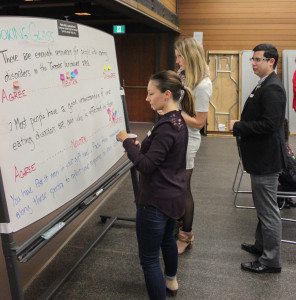
We spent the remainder of the afternoon discussing current issues related to eating disorders and how the Looking Glass can address them. The Looking Glass Program Coordinators joined the volunteers for a provocative, informed dialogue around eating disorder resources and education. The discussion reinforced a number of important issues and goals:
With these issues in mind, 2017 is going to be a very exciting year for the Looking Glass Foundation! We are planning a Community Dialogue Series, expanding our Hand-in-Hand Support Program, and exploring the potential for a Youth Engagement program. Amidst these new initiatives, the upcoming nation-wide screening of Something’s Gotta Give, and the ongoing development of our existing programs, we are feeling strong, empowered, and deeply grateful to our amazing community of Looking Glass supporters. Thank you for all of your ideas, your passion, and your commitment - we hear you, and we stand with you.
But before we get too carried away with all the new things we’re going to do next year, let’s not forget about all the wonderful things that are already happening:
TO all of our supporters who make what we do possible: thank you, every single day. We feel so honoured to have you with us.
So anytime it feels as though the holiday season is just a bit too much, or your final exams and papers are weighing on your mental wellbeing, or the politics of dispassion seem to threaten the will of the hopeful in this world, just remember that you are an integral part of the positive change that is happening every day. Together, we will educate our communities. Together, we will be the supportive scaffolding for individuals and families who suffer. Together, we will get to the other side of eating disorders.
Together, we will bring in a better New Year.
Wishing you a warm and bright holiday season!

Katalina Bernards

Volunteer Coordinator
[/vc_column_text][/vc_column][/vc_row][vc_row][vc_column][vc_tta_pageable][vc_tta_section title="Section 1" tab_id="1481833711188-8944ce41-aff3"][/vc_tta_section][vc_tta_section title="Section 2" tab_id="1481833711236-b2175ed9-078f"][/vc_tta_section][/vc_tta_pageable][/vc_column][/vc_row]
[vc_row][vc_column width="1/1"][vc_column_text][printfriendly]
By Ljudmila Petrovic
When I first went into recovery, I knew that it was going to be a learning curve, but one of the hardest lessons I had to learn was to do with exercise. There had been so much focus on my weight and eating habits in the early stages of my recovery that exercise was anything but in the forefront. It wasn’t until about a year into my recovery that I was faced with a difficult truth: exercise isn’t always healthy.
In a clinical sense, I was all recovered. I was back at a healthy weight, I had reincorporated most foods into my daily diet, I wasn’t purging after meals, and I didn’t have visible distress about eating meals. I was exercising a lot, but exercise is healthy, right? The reality is, however, that my exercising at the time was anything but healthy. My thought processes around exercise were not much different from those I had had around food.
 One day, I found myself locked in the bathroom, doing sit-ups on the bathroom floor and I realized that something about this felt all too familiar. How is this any different from purging? I asked myself. Is this really about health anymore? It was then that I began to think about why I was exercising and how it was affecting my life. Exercise was impeding on my social life, just as starving myself had. I was exercising even when my body was saying no, I was taking extreme measures to exercise, and the food allowances I made myself were directly reliant on how much I had exercised that day. I was so used to hearing the health industry’s mantra that exercise is unequivocally and completely healthy, that we can always exercise more, and that going to the gym is always good. I hadn’t stopped to look at how this was playing out in my own recovery and my own overall wellness. It wasn’t until later when I learned about orthorexia nervosa (which, although not yet considered a clinical eating disorder by the DSM, is an unhealthy fixation on “eating clean”) that I started rethinking behaviours I had considered “healthy” and a deviation from my eating disorder—including exercise.
One day, I found myself locked in the bathroom, doing sit-ups on the bathroom floor and I realized that something about this felt all too familiar. How is this any different from purging? I asked myself. Is this really about health anymore? It was then that I began to think about why I was exercising and how it was affecting my life. Exercise was impeding on my social life, just as starving myself had. I was exercising even when my body was saying no, I was taking extreme measures to exercise, and the food allowances I made myself were directly reliant on how much I had exercised that day. I was so used to hearing the health industry’s mantra that exercise is unequivocally and completely healthy, that we can always exercise more, and that going to the gym is always good. I hadn’t stopped to look at how this was playing out in my own recovery and my own overall wellness. It wasn’t until later when I learned about orthorexia nervosa (which, although not yet considered a clinical eating disorder by the DSM, is an unhealthy fixation on “eating clean”) that I started rethinking behaviours I had considered “healthy” and a deviation from my eating disorder—including exercise.
If you are in recovery, no matter how far along that may be, take a moment to look at your exercising habits.
Take a moment to ask yourself why you exercise and how you measure a workout. Is it measured by numbers—for example, by how many calories you burned—or by how it made you feel and how it served your body? Do you exercise in order for eating to feel okay, or do you exercise for yourself—for stress relief, for a clearer mind, for feeling good? How flexible are you in your workout schedule? Does missing a workout throw you into a state of anxiety? Is exercise just one aspect of your wellness plan or is it a preoccupation and a compulsion?
The thing with exercise is that it can be taken too far, just like anything. It can be an essential part of a healthy lifestyle and of a successful recovery, but it can also become an obsession and an unhealthy habit when taken too far. This doesn’t mean that exercise is necessarily “bad” or off limits, even in early recovery; it just means that we need to apply mindfulness to how and why we exercise. Maybe the gym, with machines that measure the number of calories burnt, is a triggering place, but a walk in the park or a bike ride with a friend is an enjoyable experience. Maybe you feel particularly fatigued on a certain day and need to take the extra time to catch up on sleep instead of waking up early to run before work. Listening to your body and being mindful of what it needs—whether that is exercise or rest—is an essential part of recovery and maintaining a truly healthy lifestyle.
[/vc_column_text][/vc_column][/vc_row][vc_row][vc_column][vc_column_text]
[/vc_column_text][/vc_column][/vc_row][vc_row][vc_column width="1/1"][vc_column_text]
[dt_divider style="thin" /]
Ljudmila graduated from SFU, where she studied psychology and gender studies. She lives in Vancouver, BC and is doing her MA in counselling psychology, with the goal of doing women-centred therapy.
[/vc_column_text][/vc_column][/vc_row]
[vc_row][vc_column][vc_column_text][printfriendly]
By Sara Cohen
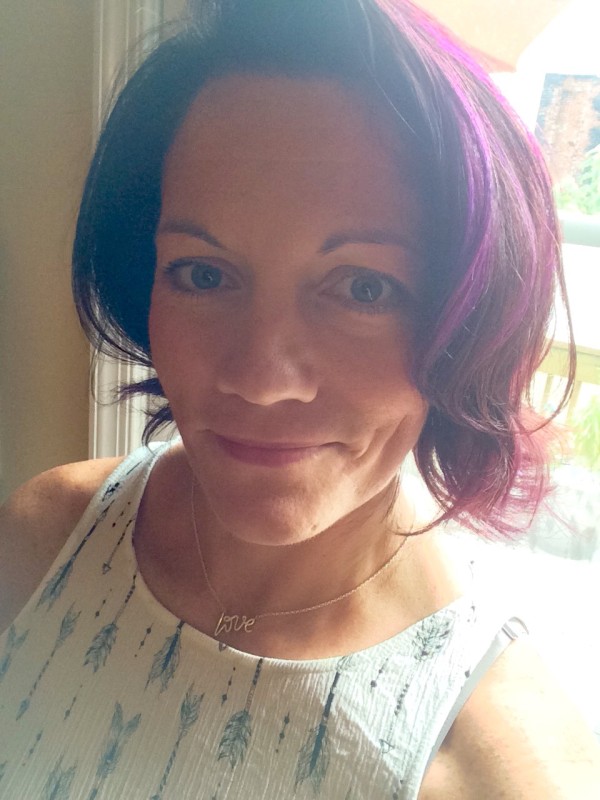 I’m very open about my eating disorder history. Something that has resulted in people coming to me privately and saying, “So how did you finally recover?". I’ll start off by saying that I personally don’t think that you simply recover. I feel like recovery is more of a constant continuum. I had been actively recovering from anorexia and bulimia for 10 years before I started trying to have children. I felt strong, I felt decent about my relationship with food, exercise, my body, and I felt ready. My biggest fear…more than gaining pregnancy weight or the birthing experience or how to take care of a baby…my biggest fear, was that my child would grow up and have a disordered relationship with food and struggle the way I had. Maybe that sounds dramatic but the way I saw it, spending so much of my life fighting an eating disorder and struggling to have “normal” food experiences was exhausting and not what I wanted for my child.
I’m very open about my eating disorder history. Something that has resulted in people coming to me privately and saying, “So how did you finally recover?". I’ll start off by saying that I personally don’t think that you simply recover. I feel like recovery is more of a constant continuum. I had been actively recovering from anorexia and bulimia for 10 years before I started trying to have children. I felt strong, I felt decent about my relationship with food, exercise, my body, and I felt ready. My biggest fear…more than gaining pregnancy weight or the birthing experience or how to take care of a baby…my biggest fear, was that my child would grow up and have a disordered relationship with food and struggle the way I had. Maybe that sounds dramatic but the way I saw it, spending so much of my life fighting an eating disorder and struggling to have “normal” food experiences was exhausting and not what I wanted for my child.
Fast forward several months, and my son was born. My husband and I were delighted, and I was grateful that I did not have reproductive sequlae related to my eating disorder…very grateful in fact. He grew fast (time seems to fly when you are watching a tiny human develop), and he was suddenly a toddler eating real food. That is the point that I decided firmly that I would do everything in my power to do this part right. To teach my son to have a healthy relationship with his body and with food. Part of me worried that by trying to create a healthy eating culture in our home, I would inadvertently focus too much on food, thereby creating an unhealthy one. In order to decide how we would do this, I looked back at my experiences growing up and what parts were not helpful. I paid attention to phrases and actions I experience in the world around me and which ones made me cringe or triggered an eating disorder thought. Eventually I had a good grasp on how I wanted to move forward.
Here is a list of how we do things in our house. Some have been altered over time. We have two boys now and these come naturally to us, after 10 years of practice:
There may be more, but these are the main ways that we have worked to create a healthy, balanced environment for our kids to grow.
In a surprising twist of fate, all of this has actually cemented my recovery status. About 5 years into modelling these healthy behaviours for my kids, I found that I was no longer acting for them. I was no longer putting on the healthy face for them, while struggling with it in my head. Watching my kids thrive and grow, I started believing what I told them…about myself. I started looking at food as fuel to keep my body healthy and active. I allowed myself to eat foods that I haven’t eaten in 20 years, because I could do so in moderation. I started looking in the mirror and liking what (and who) I saw. I don’t want to say that my kids were the reason that I am so firmly in recovery…that seems like a lot of pressure to put on them…but it’s true. I’m not saying there aren’t days that I struggle, but they are so few and far between and very manageable. I am also not naïve to think that my kids will never develop an eating disorder. I feel that I have laid some solid foundations for their future experiences with food and am modelling good behaviours. It is the best that I can do for them, and as it turns out, for me as well![/vc_column_text][/vc_column][/vc_row][vc_row][vc_column][vc_empty_space][vc_column_text]
Sara is a neonatal nurse, with a master's degree in nursing education. She lives in Philadelphia, Pennsylvania (US) with her husband, 2 young boys, and 2 dogs. She openly speaks about her recovery from anorexia and bulimia with the hope that she can be a positive influence to anyone who needs it. Her passions include her kids, distance running, reading, turtles, and all things purple.
[/vc_column_text][/vc_column][/vc_row]
[vc_row][vc_column][vc_column_text][printfriendly]
By Kaela Scott
The countdown to the holiday season has arrived. For some this is a really exciting time of year and for others it can bring about quite a bit of anxiety. Whatever your feelings are about this season, one thing we know for sure is that it is filled with lots of socializing and eating. Here are a few things I recommend you do to make the holidays more merry and less stressful.
Wishing you warmth and wellbeing this entire holiday season.[/vc_column_text][/vc_column][/vc_row][vc_row][vc_column][vc_column_text]
[/vc_column_text][/vc_column][/vc_row][vc_row][vc_column][vc_column_text]
[dt_divider style="thin" /]
Kaela Scott is a Registered Clinical Counsellor who specializes in Eating Disorders. She runs her own private practice and works with the Looking Glass Foundation in both their summer camp and their Hand In Hand Program. She has been passionate about working with eating disorders since freeing herself from her own struggle and realizing what it is like to be happy and well. When she isn’t working, you can find Kaela either cozying up with a cup of tea and her friends or up in the mountains going for a hike.
[/vc_column_text][/vc_column][/vc_row]
[vc_row][vc_column][vc_column_text][printfriendly]
By Asaka Kaneda
But…do I really want to recover?
Throughout the past years filled with multiple attempts at recovery, it was always this same, tenacious thought that would throw me off the path. Knowing that you need to let go versus actually letting go of your eating disorder — if only one was as easy as the other. For me personally, the ‘knowing’ part was never actually the issue. Though it may have taken me many years to open up to others that I struggled with an eating disorder, my own mind and gut knew it much earlier on. Just a few months into my neurotic regimen of extreme restriction and over-exercising, deep down, I knew. I was already well aware that my habits were something much more serious than ‘just a phase’. Whilst the lack of recognition towards one’s own eating disorder may be a key issue for many, this wasn't the case for me. I knew for years that I had an eating disorder; I knew all along.
I can be honest with myself today and admit what the issue actually was: I couldn’t — and didn't — wholeheartedly want to recover. As mentally and physically strenuous it was each day to struggle through life with an eating disorder, the thought of letting go of it was far more frightening and difficult to face. I knew what recovery meant, and I knew what it would be asking of me. It would mean that I would have to accept that the body that I had until then, wasn't mine to keep anymore. Every pound that I’d shed through the years that I had spent faint with hunger and obsessing over what I'd consumed. Every muscle on my body that I’d worked so hard to tweak from my often absurd workout regimen — I would have to bid farewell to it all.
But I did. I let it go.
I leave no room for sugarcoating; by no means was the path easy, nor was it linear. Time and time again when I would ask myself if letting go was what I really wanted, I would cave to the voices that would convince me otherwise. Just when I thought I had succeeded in leaving my numerous contorted, self-deprecating thoughts and habits in my past for good, I would find myself overcome by doubt. In my discomfort of beginning to transition into my new body with all of its unfamiliar sizes and proportions, I would second guess my decision in choosing to recover, and inevitably fall back into the dark caverns of relapse.
But I did it. I finally let go.
And I can say today, with utmost confidence, that the value of everything that I have gained in its place is just worth so, so much more. I can now spontaneously go out for dinner and drinks with friends, instead of being panic stricken and instantly scheming for reasons to decline an invite. On the mornings that I am tired, I sleep in and rest, instead of forcing myself into the gym out of fear of ‘losing progress’. No longer do I live everyday in fear of facing the guilt of ‘falling off the wagon’, as the wagon itself doesn't exist anymore.
The thought of this liberation felt so distant and out of reach for so long, but after all these years, it has finally become my reality. The thing is, the answer that I can admit to be the truth today was right there in front of me all along.
But…do I really want to let go?
Yes. Yes, I do. I want to recover. In order for me to regain my life, I need to let go.
[/vc_column_text][/vc_column][/vc_row][vc_row][vc_column][vc_empty_space][vc_column_text]
Asaka is a recent graduate from the University of British Columbia, where she pursued her interests in Sociology and Gender Relations. Having spent much of her student life fighting and recovering in silence from eating disorders, she has now found her passion in reflecting and writing on her personal past experiences. She hopes that her recollections will both provide support to those who are suffering, as well as spread awareness on the largely overlooked, stigmatized issues surrounding eating disorders.
[/vc_column_text][/vc_column][/vc_row]
[vc_row][vc_column][vc_column_text][printfriendly][/vc_column_text][vc_empty_space height="16px"][vc_column_text]A Looking Glass Donor Profile:
It’s been said that there’s great strength and power in community. At the Looking Glass Foundation, we definitely believe that. It’s with our bighearted community of people and organizations, that we truly can make a difference in the lives of others, in the lives of those fighting this dreadful disease. It is with our community, that we can put an end to eating disorders.
One of these organizations is Sympli, a Canadian fashion manufacturer dedicated to helping women feel "wildly comfortable in their own skin". Believing that "all women should love who they are without compromise", Sympli manufacturers an extensive line of well-fitted, flattering clothing that looks and feels beautiful on women of every body type. They want women to wear clothes as a compliment to their individual personality, mood and purpose – and to dispel the myth that they would be happier with a 'perfect body' (Visit http://sympli.com to explore gorgeous clothing made for every body).
Sympli brings so much strength to our community with their continued support, but also their stance on what fashion should be. Anyone who's ever been to a Looking Glass Gala knows that Sympli donates generously to the Foundation, and has done so for many years. "Whatever we can do to embrace the fight against these young women suffering from these eating disorders, we just have to do," says Sympli founder Jan Stimpson. "It's vitally important that these young women learn to enjoy healthy and strong lives".
Calling them "a source of passion, love, and unending support", Looking Glass co-founder Deborah Grimm recalls when Sympli first began supporting the Foundation. "They arrived on our doorstep out of the blue, embraced us and just never let us go", she says. "They have taught me so much about life and goodness, and I know I will never be able to truly express the depth of gratitude I feel for their trust and generosity."
We recently sat down with Jan and her daughter Abbey to have a spirited conversation about a whole range of topics: their commitment to help fight eating disorders ... how the fashion industry needs to change ... why women of all shapes and sizes should feel beautiful ... and about what the role of women is in creating lasting change. Give a listen to our video, Sympli: Giving Back in So Many Ways.
A big Thank You to Jan, Abbey, and all the wonderful people at Sympli – for giving so much, and in so many ways. Through your support, you are making a difference to those suffering from eating disorders and their families.
Not only are you redefining how the fashion industry can make women feel good about themselves ... you are also showing women how to take back their power and create positive change. May the movement grow and flourish![/vc_column_text][/vc_column][/vc_row][vc_row][vc_column][vc_column_text]
[dt_divider style="thin" /]
[/vc_column_text][/vc_column][/vc_row]